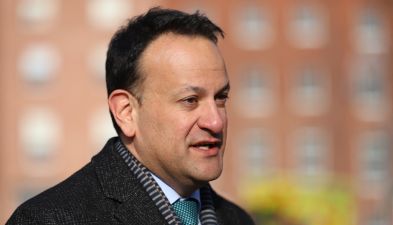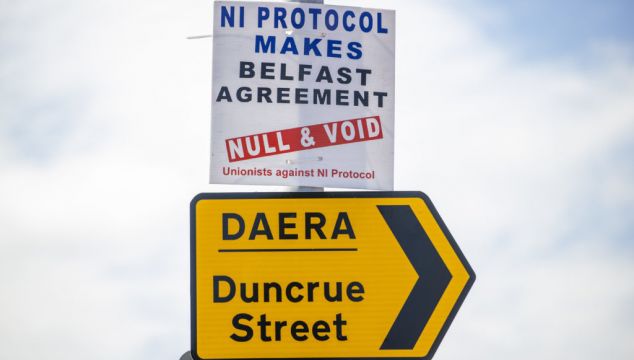The British Ambassador to Ireland, Paul Johnston has said the proposals agreed in the Northern Ireland Protocol, which was signed two years ago, are no longer viable and a balance which is more acceptable is now required.
The difficulty was in finding the right approach, he told RTÉ Radio’s News at One.
The Irish and British governments are in agreement that it is important to get the Northern Ireland Executive up and running, Mr Johnston added, but said one of the impediments to that was the DUP demanding “significant changes” to the protocol before they return to Stormont.
The protocol had led to significant costs and complexity, he said, while the Covid-19 pandemic and the war in Ukraine have also had an impact.
The ambassador said it was also very important that not just North-South trade be protected, but also trade between the North and Britain.
Mr Johnston suggested the Northern Ireland Executive could be up and running while talks were taking place between the EU and UK over the protocol.
The original agreement was no longer delivering on its fundamental objectives, “that’s why we want changes,” he said.
Unless changes to the protocol were delivered it would not be possible to get the Assembly “up and running”, he warned, adding that a solution which worked across the island of Ireland was needed.
Without delay
Earlier this week, Britain's foreign secretary Liz Truss announced the UK government will move to scrap parts of the protocol insisting the action to address the “very severe” situation in the North cannot be delayed.

Ms Truss told the UK's House of Commons she intends to bring forward the Bill within weeks, in an effort to reduce “unnecessary bureaucracy” and protect the Good Friday Agreement.
However, speaking on Wednesday morning, Tánaiste Leo Varakdar said it was difficult to know if the UK government could be trusted and if it could honour any agreement or concessions made.
He said the protocol should remain in place and Ireland was happy to help come up with solutions. However, there was an atmosphere of mistrust and there was concern that any agreement could be breached.
“There is an urgent need to rebuild trust,” Mr Varadkar added.







